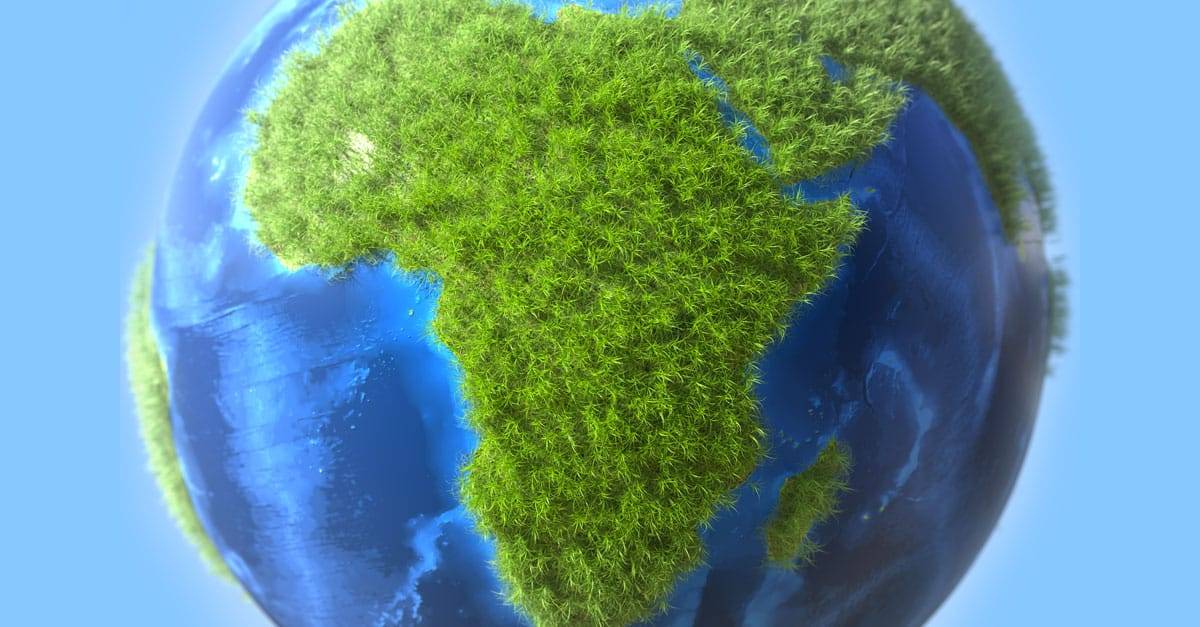Importance of Climate Policy
African countries have managed to play a significant role in climate policy in the global context. At the annual Conference of the Parties to the UN Framework Convention on Climate Change, the African community is one of the leading continental groups.
Three organisations on the African continent are responsible for this: the African Ministerial Conference on the Environment (AMCEN), the Committee of African Heads of State and Government on Climate Change (CAHOSOCC) and the African Negotiating Group.
Due to their socio-economic characteristics and heavy dependence on the agricultural sector, African countries are responsible for about 4 % of global greenhouse gas emissions. At the same time, they are particularly vulnerable to the effects of climate change. Yet African countries are already spending up to nine percent of their gross domestic product on climate change adaptation, often more than they spend on health or education.
According to the Intergovernmental Panel on Climate Change (IPCC), average temperatures in Africa are rising faster than in other regions of the world, which could lead to an increase in extreme weather events. Between 2020 and 2025, developed countries have pledged to provide US$100 billion a year from private and public sources to help developing countries and emerging economies reduce greenhouse gas emissions and adapt to climate change. African countries see this commitment as a key element in the climate negotiations.
Your Wealth, Our Priority: Altoo's Consolidation Power, Secure Document Management, and Seamless Stakeholder Sharing for High Net Worth Individuals. Preview Platform.
Renewable Energy as a Major Opportunity
Africa is well placed for green economic growth, as its young, developing industries have sufficient sun, wind and water for energy production. The continent’s economies can use efficient equipment, digital technologies and renewable energy to produce sustainable materials, for example.
According to an EU-African Union report, Africa has exceptional potential for green hydrogen. If the EU is to avoid the colonial mistakes of the past and ensure that the hydrogen economy benefits the more than 600 million Africans without access to electricity, all proposed projects must be carefully financed and implemented.
Donal Cannon from the European Investment Bank’s (EIB) advisory team involved in preparing the report explains that for many industries and organisations, green hydrogen is the only route to sustainability.
However, the best locations for green hydrogen production tend to be in sunny climates such as Africa. Cannon predicts that Africa, along with India and Chile, will be among the places where green hydrogen can be produced at the lowest cost.
Speaking at the Africa Adaptation Summit in Rotterdam in 2022, EU climate commissioner Frans Timmermans suggested that this could make the continent a “powerhouse for the energy of the future”.
Consequences of Corruption
One of the main obstacles to effective climate and environmental protection in sub-Saharan Africa is the widespread problem of corruption. With sad regularity, the region tops the list of the world’s most corrupt countries. According to Transparency International’s Corruption Perceptions Index, 10 of the 20 most corrupt countries in the world are in sub-Saharan Africa. Corruption in environmental and resource management can begin with environmental impact assessments, where the environmental risks of a project are glossed over in exchange for payment. This often has a negative impact on ecosystems and biodiversity. An investigation by the Environmental Protection Agency Sierra Leone (EPA-SL) found that about one-third of companies audited did not carry out legally required environmental impact assessments, had little or no knowledge of environmental regulations, and often violated them.









